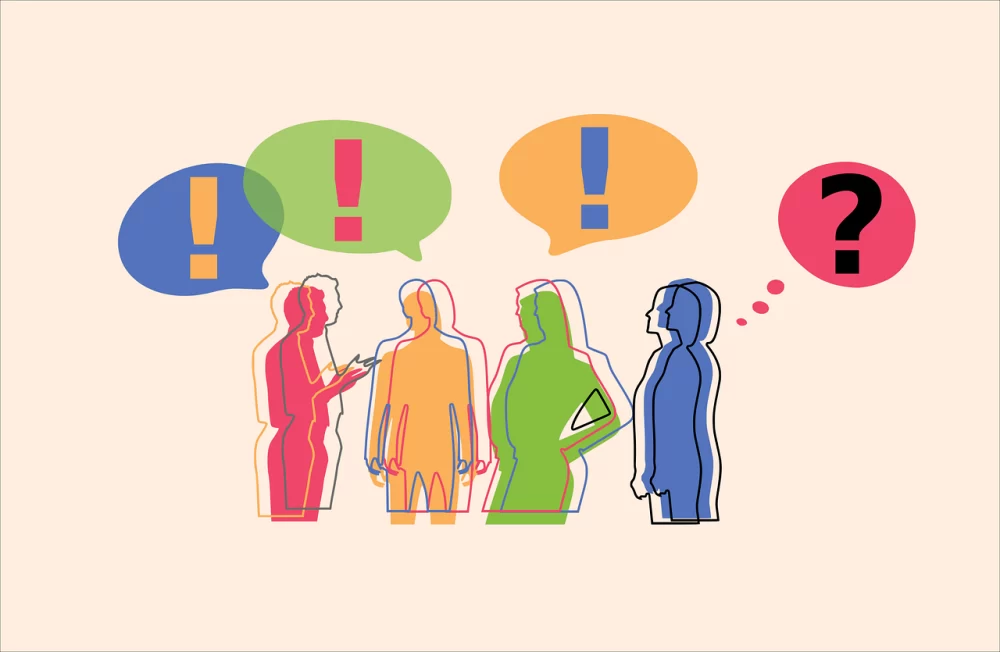They say first impressions are important. Clothing, hairstyle, posture — all these things affect one’s opinion of others. Admittedly, outward appearances are relatively easy to tailor to one’s environment — it’s about as appropriate to wear a bathing suit to a job interview as a business suit to the beach, after all.
Unfortunately, it is the more immutable features of one’s character that tend to garner more insidious judgment. Race, gender, sexual orientation — prejudice based on these identities have unambiguously and unequivocally shaped human history for the worse, and are rightfully stigmatized as a result. But, for most, one outward characteristic remains poorly acknowledged, much less defended: one’s dialect.
A dialect, often called an accent in common parlance, refers to the pronunciation, vocabulary, and grammar of an individual, specifically with respect to those aspects common or unique to a geographic area. This can range from a Bostonian’s pronunciation of “Pahk the cah in Hahvahd Yahd,” to a Southerner’s use of the word “y’all,” to the “non-standard” grammar of African-American Vernacular English (AAVE), which includes such phrases as “He be working.”
In popular media, dialects are often stereotyped to evoke a certain perception. A British accent may be used to indicate a high degree of education or wealth, or outright pompousness. A thick Baltimore accent may be played for laughs, or imply a rough upbringing. A Southern or AAVE accent may relay wholesomeness, or a plain lack of education.
While these depictions are often portrayed as lighthearted, if not comedic, they are in reality quite damaging, especially to developing children. As researchers Kana Imuta and Jessica Spence from the University of Queensland describe, children have an innate predisposition against “foreign-accented speakers,” i.e. other children with dialects not commonly found in their hometown.
Sociolinguists professor Walt Wolfram’s article “Everyone has an Accent” underscores the fact that playing into the stereotypes surrounding one’s dialect often leads to the ostracism and belittlement of schoolchildren whose natural dialect is considered “non-standard” by their peers. This phenomenon extends beyond native English education and schoolchildren; researchers Udiana Puspa Dewi and Abdul Aziz Turhan Kariko found that Javanese English as a foreign language educators exhibit prejudice against non-British English dialects, including those of their students, citing even the local Javanese accent as “non-standard” and “incorrect.”
Up until this point, the term “non-standard” has appeared in scare quotes, due in no small part to the fact that there is no linguistic standard for any dialect of English. While other languages, such as French and Arabic, have governing bodies that ostensibly dictate which dialect is “proper,” often coincidentally choosing the archaic prose of the ruling class and conveniently ignoring popular opinion, English lacks such a centralized authority.
This is not to say that there have been no attempts to standardize English; prescriptivist textbooks, dictionaries, and style guides have, to varying degrees of success, influenced what constitutes “proper” English for centuries. In spoken English, the gold standard used by American broadcasters is generally referred to as Standard American English (SAE) and is consistent across the nation.
Aside from the aforementioned liability for prejudice when taking any single dialect as “standard,” there is one small problem with SAE: it is made up. There is no one dialect that encompasses that of the average American, and to pretend that there does exist such a dialect, as covered, serves nought but to uphold an elitist benchmark, itself serving only to damage those who fall outside the mythical standard.
In short, dialect discrimination is alive and well, and it fails to receive the exposure it deserves on account of societal acceptance of accent-centered stereotypes, the propagation of which damages those who fall outside the arbitrary standard set by popular media at large. Therefore, it is apt to acknowledge these prejudices and, instead of feeding into them, fight against their implications.
Aside from the aforementioned liability for prejudice when taking any single dialect as “standard,” there is one small problem with SAE: It is made up.
In short, dialect discrimination is alive and well, and it fails to receive the exposure it deserves on account of societal acceptance of accent-centered stereotypes, the propagation of which damages those who fall outside the arbitrary standard set by popular media at large.
Image courtesy of Pixabay
